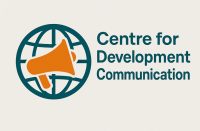In the last six years I have effectively engaged rural communities in Nigeria. My interactions with them revealed that climate change is a lived reality — not a technical issue. Changes in rainfall patterns, floods, heatwaves, and altered planting seasons are everyday disruptions the locals face and experience. Yet, the dominant climate response models ignore the voices of the locals who are the most affected.
Specifically, in my engagement with rural farmers in Kawu, Igu, Zuma, Dota, Kaida, and Dobi communities, located in Bwari and Gwagwalada Area Councils of FCT-Abuja respectively, in a research titled “Indigenous Adaptation Measures Adopted by Rural Farmers in FCT-Abuja to Mitigate Climate Change Impacts,” I found that rural farmers already possess a rich repository of adaptation wisdom: using crop rotation, planting drought-resistant crops, soil preservation, changing planting seasons, reading skies, building bunds, preserving seeds, and relocating herds in rhythm with nature.
Despite the established Indigenous Adaptation Measures adopted by farmers and rural communities, Non-Governmental Organizations (NGOs) or government-led programs overlook them. In our climate change resilient interventions, we design projects with pre-packaged “solutions,” with a total disregard for Indigenous Knowledge — which affirms the exclusion of the very people we claim to empower.
My field experience revealed that our silencing of Indigenous Knowledge isn’t just an oversight — it’s a climate injustice. It also revealed that our approach reinforces a pattern that makes development become a one-way street, where we arrogantly arrogate to ourselves the role of experts who speak, and communities are expected to obey.
As we design our intervention, I recommend that we must move from extractive awareness campaigns to participatory communication that will enable effective community participation in decision-making on issues affecting them.
This is most fundamental because communities don’t just need information — they need recognition. Their knowledge systems are not backward; they’re adaptive, tested, and resilient.
Climate justice must begin with communicative justice — and that starts by valuing what communities already know.
Audu Liberty Oseni
Director, Centre for Development Communication
